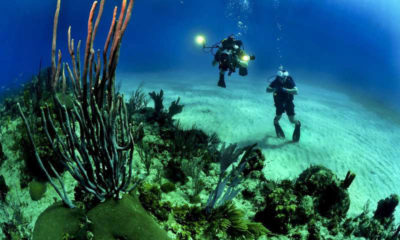A team of marine biologists have discovered nearly 200 species of Great Barrier Reef corals living in a deep-sea reef off the northeast coast of Australia — more than six times what researchers previously believed to be living there, according to a new study published in the journal Proceedings of the Royal Society B. The findings make the Australian coral colony the most diverse deep-water reef in the world.
The scientists, led by Paul Muir from the Queensland Museum, argue that the discovery offers “a glimmer of hope” that shallow-water corals stressed by warming ocean temperatures and increasing acidification may find refuge in deep-water reefs. And since these the refuge-seeking corals represent nearly every evolutionary coral family, the scientists hypothesize that they could later be used to reestablish shallow-water reefs.
To date, exploration of deep-sea coral — which are found in habitats 100 to 500 feet below the ocean’s surface with very little sunlight — has largely been limited to observations by submersibles or sampling dredged-up material. Muir and his colleagues instead conducted several SCUBA diving trips and remotely operated underwater vehicle expeditions to collect 1,263 coral samples from 2010 to 2016. They found 195 coral species that previously were known to only inhabit shallow waters.
“The deep reef is a lot more diverse and interesting than we thought,” Muir, lead author of the new study, told Science News. “It’s a bit of a good news story, and there aren’t many of those around at the moment.”
